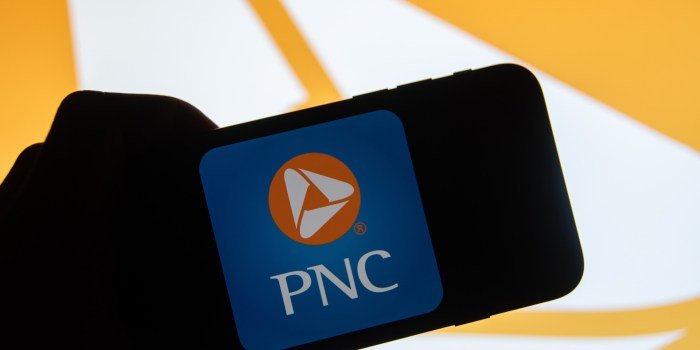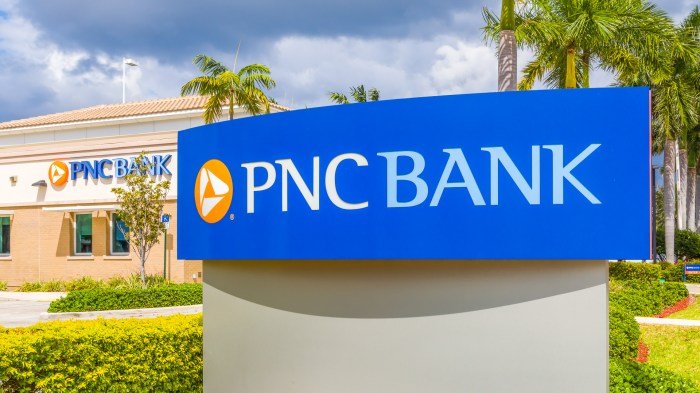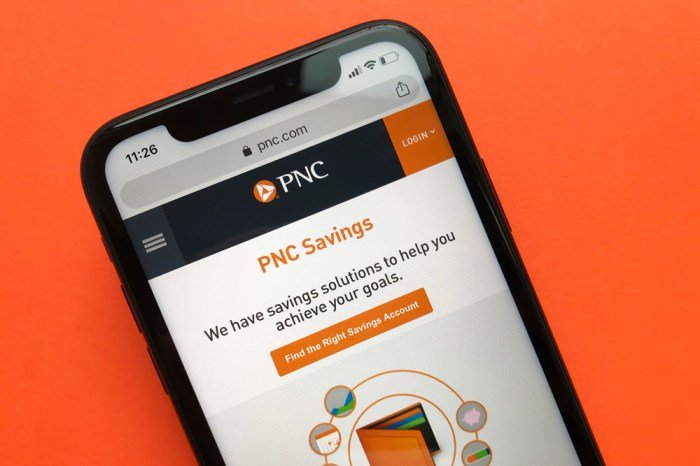Health Savings Account PNC, a powerful tool for managing healthcare costs, offers a unique way to save money and take control of your health finances. With a PNC HSA, you can set aside pre-tax dollars for qualified medical expenses, enjoy tax-free growth on your savings, and potentially reduce your overall healthcare burden.
PNC Bank provides a comprehensive platform for managing your HSA, offering convenient online banking, a user-friendly mobile app, and dedicated customer service. Whether you’re looking to save for future healthcare needs, cover current expenses, or invest for potential growth, a PNC HSA can be a valuable addition to your financial toolkit.
What is a Health Savings Account (HSA)?

A Health Savings Account (HSA) is a tax-advantaged savings account that allows you to set aside money to pay for qualified healthcare expenses. It’s a great way to save money on taxes and build a healthcare fund for the future.
Purpose of an HSA
The purpose of an HSA is to help individuals pay for qualified healthcare expenses, such as deductibles, copayments, and coinsurance. HSAs are designed to help individuals take control of their healthcare costs and save money on taxes.
Eligibility Requirements for an HSA
To be eligible for an HSA, you must:* Be enrolled in a high-deductible health plan (HDHP).
- Not be covered by another health insurance plan, such as Medicare or Medicaid.
- Not be claimed as a dependent on someone else’s tax return.
Tax Advantages of Using an HSA
HSAs offer several tax advantages, including:* Triple-tax advantage:Contributions to an HSA are tax-deductible, earnings grow tax-free, and withdrawals for qualified medical expenses are tax-free.
Rollover
You can roll over any unused funds from year to year without penalty.
No “use it or lose it” rule
Unlike FSAs, you don’t lose any unused funds at the end of the year.
Comparison of an HSA with a Flexible Spending Account (FSA)
An HSA and an FSA are both tax-advantaged accounts that can be used to pay for qualified healthcare expenses. However, there are some key differences:
| Feature | HSA | FSA |
|---|---|---|
| Eligibility | Must be enrolled in an HDHP | Can be offered with any health plan |
| Contribution limit | Higher contribution limit than FSAs | Lower contribution limit than HSAs |
| Tax advantages | Triple-tax advantage | Pre-tax contributions, tax-free withdrawals |
| “Use it or lose it” rule | No “use it or lose it” rule | “Use it or lose it” rule applies |
| Ownership | You own the account and the money | The account is owned by your employer |
PNC Health Savings Accounts

PNC Bank offers Health Savings Accounts (HSAs) as a way to help you save for healthcare expenses. An HSA is a tax-advantaged account that allows you to set aside money to pay for qualified medical expenses. HSAs are a great way to save money on healthcare costs, and they can be a valuable tool for managing your health finances.
Features and Benefits of PNC HSAs
PNC HSAs offer a range of features and benefits that can help you save money and manage your healthcare expenses. Here are some of the key benefits of opening a PNC HSA:
- Tax-advantaged savings: Contributions to an HSA are tax-deductible, and withdrawals for qualified medical expenses are tax-free. This can help you save a significant amount of money on your healthcare costs.
- Triple tax advantage: HSAs offer a triple tax advantage: contributions are tax-deductible, earnings grow tax-deferred, and withdrawals for qualified medical expenses are tax-free.
- Carryover balance: Unlike Flexible Spending Accounts (FSAs), HSA funds roll over year to year, so you can save your money for future healthcare expenses.
- Investment options: PNC HSAs offer investment options, allowing you to grow your savings over time.
- Debit card access: PNC HSAs come with a debit card that you can use to pay for qualified medical expenses directly.
- Online and mobile access: You can manage your PNC HSA account online or through the PNC mobile app, making it easy to track your balance, make contributions, and pay for medical expenses.
Opening a PNC HSA, Health savings account pnc
Opening a PNC HSA is a straightforward process. You can open an account online, by phone, or in person at a PNC branch. Here are the steps involved in opening a PNC HSA:
- Eligibility: To be eligible for an HSA, you must have a high-deductible health plan (HDHP).
- Choose a plan: PNC offers a variety of HSA plans to choose from, with different features and fees.
- Provide personal information: You will need to provide your personal information, such as your name, address, and Social Security number.
- Fund your account: You can fund your HSA account with a one-time contribution or make regular contributions.
Managing Your PNC HSA
PNC offers a variety of ways to manage your HSA account, including online banking, the mobile app, and customer service.
- Online banking: You can access your PNC HSA account online through PNC’s website. This allows you to track your balance, make contributions, pay for medical expenses, and manage your account settings.
- Mobile app: PNC also offers a mobile app that allows you to manage your HSA account on the go. The app provides access to the same features as the online banking platform, making it easy to manage your account from your smartphone or tablet.
A Health Savings Account (HSA) with PNC can be a valuable tool for managing healthcare costs, especially if you have a high-deductible health plan. If you’re considering a career in health informatics, you might be interested in learning about the salary for health informatics professionals.
With a growing demand for skilled professionals in this field, a health savings account can help you plan for your future healthcare needs, ensuring you’re financially prepared to navigate the evolving healthcare landscape.
- Customer service: If you have any questions or need assistance with your PNC HSA, you can contact PNC customer service by phone or email.
Using a PNC HSA: Health Savings Account Pnc

Contributing to and using your PNC HSA is straightforward. You can contribute to your HSA through payroll deductions or by making direct contributions from your bank account. These contributions can be made at any time throughout the year.
A Health Savings Account (HSA) through PNC can be a great way to save money on healthcare costs, especially if you’re looking to invest in your fitness. To get started, consider finding a convenient gym, like vasa fitness near me , and using your HSA funds to cover membership fees.
This can be a smart way to manage your health and finances simultaneously.
The funds you contribute to your HSA grow tax-deferred, meaning you won’t pay taxes on the earnings until you withdraw them.
Using HSA Funds
You can use your HSA funds to pay for qualified healthcare expenses, which include a wide range of medical costs. These funds can be used to cover expenses for yourself, your spouse, and your dependents. You can withdraw funds from your HSA by using your HSA debit card, writing a check, or transferring funds to your bank account.
- Medical Expenses:You can use your HSA funds to pay for medical expenses, such as doctor’s visits, hospital stays, prescription drugs, and dental and vision care.
- Qualified Healthcare Expenses:You can also use your HSA funds to pay for qualified healthcare expenses, such as over-the-counter medications, medical supplies, and long-term care.
- Over-the-Counter Medications:You can use your HSA funds to pay for over-the-counter medications, such as pain relievers, allergy medications, and cold remedies.
Penalties for Using HSA Funds for Non-Qualified Expenses
If you use your HSA funds for non-qualified expenses, you will be subject to a penalty. Non-qualified expenses include items such as cosmetic surgery, weight-loss programs, and non-prescription medications. The penalty for using HSA funds for non-qualified expenses is a 20% tax penalty, plus your regular income tax rate.
A PNC Health Savings Account (HSA) can help you save for future healthcare expenses, including those related to maintaining a healthy lifestyle. You can use HSA funds to cover a range of costs, like doctor visits, prescriptions, and even natural health remedies like coconut water, which has been shown to offer a variety of health benefits, as explained in this article health benefits from drinking coconut water.
By taking advantage of your HSA and making smart choices about your health, you can take control of your healthcare costs and enjoy the benefits of a healthy lifestyle.
Tips and Strategies for Maximizing the Benefits of a PNC HSA
To maximize the benefits of your HSA, consider the following tips:
- Contribute the Maximum Amount:Contribute the maximum amount allowed each year. The maximum contribution amount is adjusted annually. The IRS sets the annual contribution limits for HSAs, and for 2023, the limit for individuals is $3,850 and for families it is $7,750.
- Invest Your HSA Funds:If your HSA allows you to invest your funds, consider investing in a diversified portfolio of stocks, bonds, and other assets.
- Use Your HSA for Qualified Healthcare Expenses:Use your HSA for all of your qualified healthcare expenses. This will help you to reduce your out-of-pocket costs and save on taxes.
- Keep Good Records:Keep good records of your HSA contributions and expenses. This will help you to track your HSA balance and ensure that you are using your funds for qualified expenses.
PNC HSA Investment Options

Your PNC HSA offers investment options that can help your savings grow over time. By investing your HSA funds, you can potentially earn higher returns than keeping them in a cash account, which may help you reach your long-term financial goals.
Investment Options
PNC offers a variety of investment options for your HSA, including mutual funds, exchange-traded funds (ETFs), and individual stocks. These options provide flexibility to align your investment strategy with your risk tolerance, time horizon, and financial goals.
Potential Risks and Rewards of Investing
Investing in the stock market involves risk. The value of your investments can fluctuate, and you could lose money. However, investing also offers the potential for higher returns than keeping your money in a cash account.
Choosing the Right Investment Strategy
When choosing an investment strategy, consider your:
- Risk tolerance:How much risk are you willing to take? A higher risk tolerance may lead you to invest in more volatile assets, while a lower risk tolerance may lead you to invest in more conservative assets.
- Time horizon:How long do you plan to invest your money? A longer time horizon allows for more time to recover from market fluctuations.
- Financial goals:What are you saving for? Your goals will help determine the investment strategy that is right for you.
Examples of Investment Options
Here are some examples of investment options available through PNC:
- Mutual funds:Mutual funds pool money from multiple investors to buy a basket of securities, such as stocks, bonds, or other assets. They offer diversification, which can help reduce risk.
- Exchange-traded funds (ETFs):ETFs are similar to mutual funds but are traded on stock exchanges. They offer diversification and can be bought and sold throughout the trading day.
- Individual stocks:Investing in individual stocks can offer the potential for higher returns, but it also carries a higher level of risk.
PNC HSA FAQs

You may have questions about PNC Health Savings Accounts. We’ve compiled some of the most frequently asked questions to help you better understand how HSAs work and how to make the most of your account.
PNC HSA Frequently Asked Questions
| Question | Answer | Question | Answer |
|---|---|---|---|
| How do I open a PNC HSA? | You can open a PNC HSA online, by phone, or in person at a PNC branch. You will need to provide some basic information, including your Social Security number and your employer’s HSA plan information. | Can I contribute to my HSA if I don’t have a high-deductible health plan (HDHP)? | No, you must have an HDHP to be eligible to contribute to an HSA. |
| What are the contribution limits for an HSA? | The annual contribution limit for HSAs is set by the IRS each year. For 2023, the limit is $3,850 for individuals and $7,750 for families. If you are 55 or older, you can contribute an additional $1,000. | What happens to the money in my HSA if I leave my job? | Your HSA is your money, and you can take it with you if you leave your job. You can transfer the money to another HSA or withdraw it for qualified medical expenses. |
| What are some of the advantages of having an HSA? | HSAs offer several advantages, including tax-free growth, tax-free withdrawals for qualified medical expenses, and the ability to roll over unused funds from year to year. | Can I use my HSA to pay for my spouse’s medical expenses? | Yes, you can use your HSA to pay for your spouse’s qualified medical expenses. |
| What are some of the things I can use my HSA for? | You can use your HSA to pay for a wide range of qualified medical expenses, including doctor’s visits, prescription drugs, dental care, and vision care. | What happens to the money in my HSA if I die? | Your HSA is considered part of your estate and can be passed on to your beneficiaries. |
| Can I use my HSA to pay for long-term care? | You can use your HSA to pay for qualified long-term care expenses, such as assisted living or nursing home care. | How do I know if I can use my HSA for a specific expense? | The IRS has a list of qualified medical expenses that you can find on their website. |
Concluding Remarks

Navigating the world of healthcare costs can be complex, but a PNC HSA offers a clear path toward financial wellness. By understanding the benefits, features, and strategies associated with a PNC HSA, you can empower yourself to make informed decisions about your health finances and achieve greater financial security.
Commonly Asked Questions
Can I use my PNC HSA for dental or vision expenses?
Yes, dental and vision expenses are typically considered qualified medical expenses and can be paid for using funds from your PNC HSA.
Is there a limit on how much I can contribute to my PNC HSA each year?
The annual contribution limit for HSAs varies based on your coverage. You can find the current contribution limits on the IRS website or by contacting PNC Bank.
What happens to my HSA funds if I change jobs or insurance plans?
Your HSA funds belong to you and remain yours even if you change jobs or insurance plans. You can keep your existing HSA or roll it over into a new account.